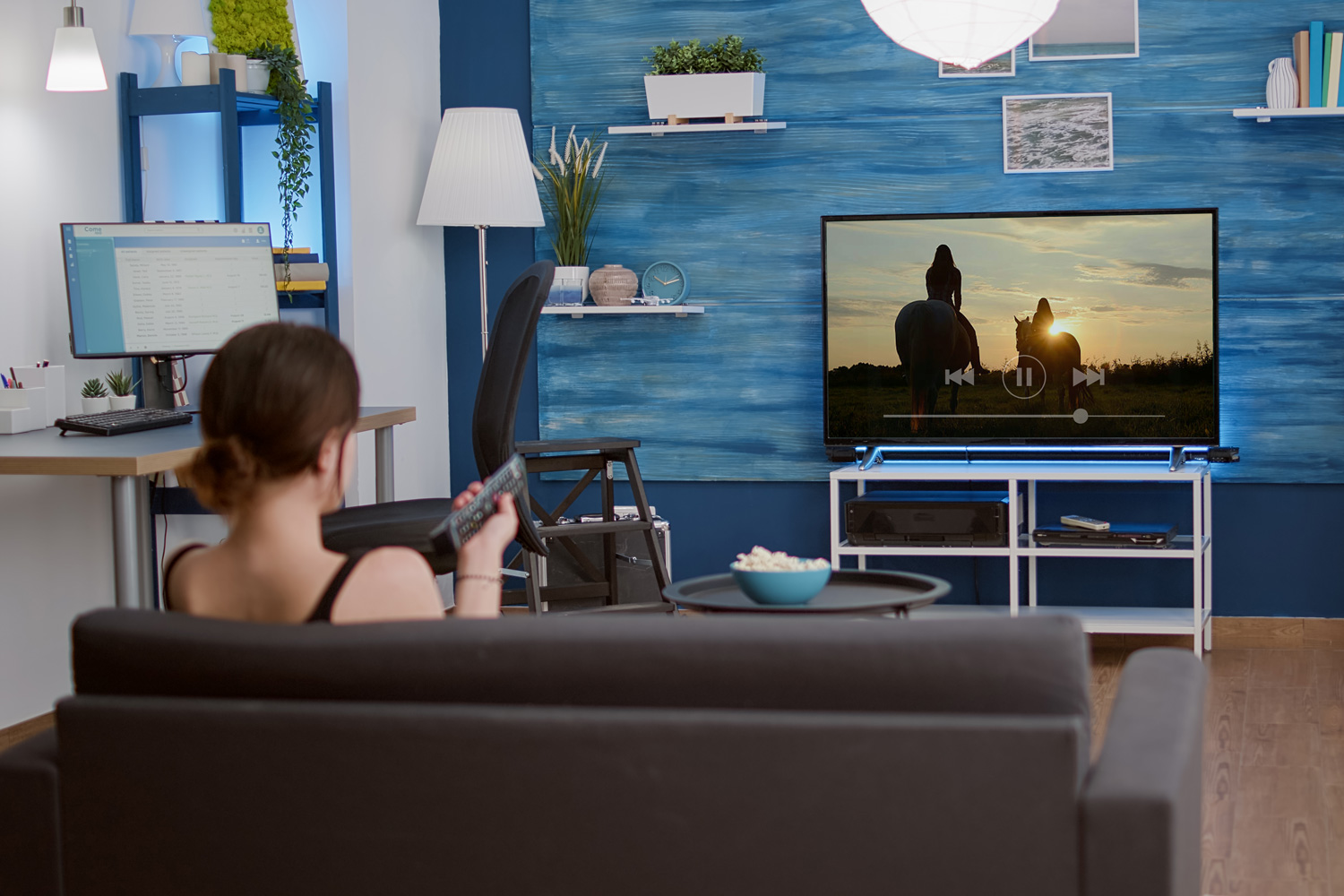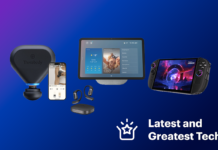
When setting up your college dorm room, a common dilemma is choosing between a TV or a computer monitor. This seemingly simple choice can significantly influence your entertainment experiences and academic productivity. With space at a premium in most dorms, you need to think about your personal needs and how much space you have.
A TV might be great if you love watching movies or gaming with friends—it usually has a bigger screen which is awesome for group activities. But if you’re limited on space, a computer monitor might be the way to go. It’s more versatile since you can use it with your laptop or desktop, and it takes up less room. Explore the pros and cons of each option in this article to make the best decision for your dorm room.
TV or computer monitor: Which one is better?
Television
A TV is perfect for entertainment. With a bigger screen, it’s great for watching movies, binge-watching shows, and gaming. Many modern TVs come with smart features, letting you stream directly from the device. The large screen is also ideal for group activities, like watching a show or playing a game with friends or roommates.
Computer monitor
On the other hand, a computer monitor is made for close-up use. Monitors often have higher resolution than TVs, so they’re great for tasks like photo editing, programming, or writing papers. They might be smaller, but the higher pixel density means clearer, sharper images. Plus, monitors are designed to reduce eye strain during long periods of use, so they’re better for academic work.
Space considerations
Dorm rooms are notoriously small, so optimizing your space is essential. When choosing between a TV and a computer monitor, think about the setup and placement. A TV, with its larger size, may require more space and a sturdy stand or wall mount, which can be challenging in a small room. In contrast, a computer monitor is smaller and more compact. I can easily fit on a desk with your other study essentials. Its smaller footprint makes it versatile for both entertainment and academic tasks, seamlessly fitting into your workspace without overcrowding it.

Purpose and usage
Entertainment
Make sure to also think about how often you’ll be using the screen and for what purposes. If entertainment is a top priority, a TV has plenty to offer. Its larger screen is perfect for enjoying shows, movies, and gaming with friends. Smart TVs come with built-in smart features, letting you stream from Netflix, Hulu, or Disney+ hassle-free. Plus, TVs often boast better audio setups, which enhances your viewing without needing extra speakers.
On the other hand, computer monitors can also handle entertainment, but their smaller size and basic audio may not deliver the same immersive feel. Yet, connecting external speakers or headphones can significantly elevate the sound quality.
Academic and productivity needs
When considering academic and productivity needs, a computer monitor has some clear advantages. Monitors usually have higher resolution and refresh rates, which help reduce eye strain during those long study sessions, paper writing marathons, or project work. Plus, they often come with multiple input ports, making it easy to juggle between a laptop, desktop, or even a gaming console.
Monitors excel in tasks that need sharp detail and extended focus. If you’re studying graphic design, programming, or any field that requires close attention to detail, a monitor is the way to go.
Connectivity and compatibility
Another important factor is connectivity and compatibility, and TVs and computer monitors offer different advantages. TVs generally come with a variety of input options. HDMI ports, USB ports, and AV inputs allow them to connect multiple devices like gaming consoles, Blu-ray players, and streaming devices. Smart TVs also include Wi-Fi and Ethernet ports for internet access.
In comparison, computer monitors provide connectivity options like HDMI, DisplayPort, USB-C, and VGA inputs. They often include adjustable stands, built-in speakers, and VESA compatibility for wall mounting, giving you more flexibility in terms of setup. Monitors are designed with computer-related peripherals in mind, which can enhance productivity and efficiency.
Pros and cons
To summarize the benefits and drawbacks of each option:
| TV pros | TV cons |
|---|---|
| Larger screen, ideal for entertainment and group viewing. | Requires more space and may need a sturdy setup. |
| Smart TV features with built-in streaming services. | Less effective for detailed academic work. |
| Versatile connectivity options. |
| Computer monitor pros | Computer monitor cons |
|---|---|
| High resolution and refresh rates ideal for close-up work. | Smaller screen size, potentially less immersive for entertainment. |
| Compact and space-efficient. | May require external speakers for better audio quality. |
| Reduced eye strain during prolonged use. |
Which one is best for you?
Choosing between a TV or a computer monitor for a college dorm room ultimately boils down to what you need and the space you have. If entertainment is key, a TV with its big screen and smart capabilities might be perfect. But if you prioritize academic work and detailed tasks, a computer monitor’s high resolution and ergonomic setup could be better suited.
When making your choice, think about your room layout, how you plan to use the screen, and your budget. Whichever you pick, setting it up for comfort and functionality will make your college life smoother and more enjoyable.





